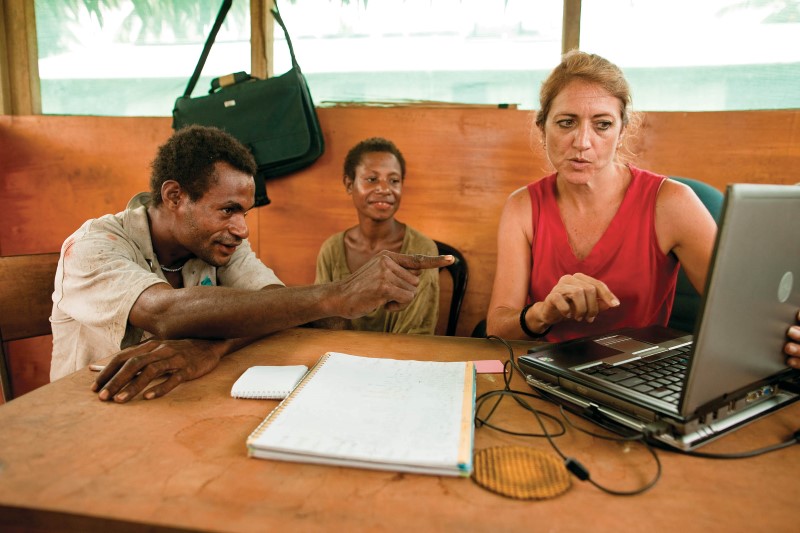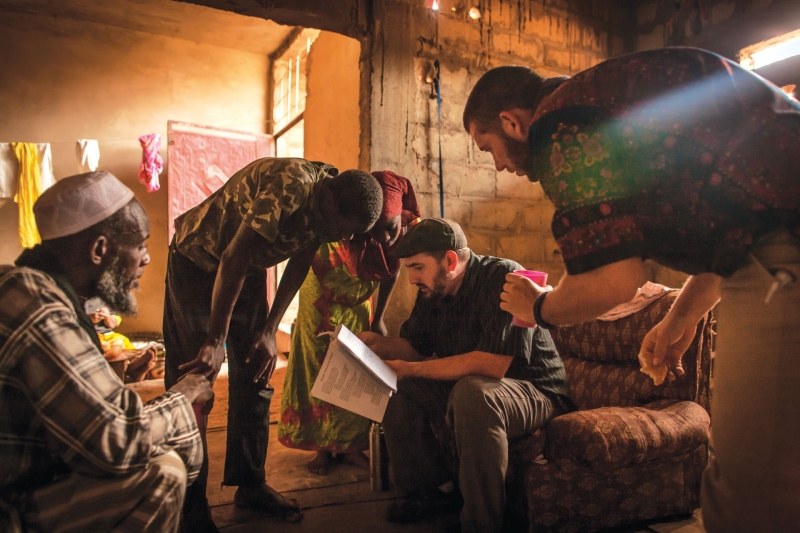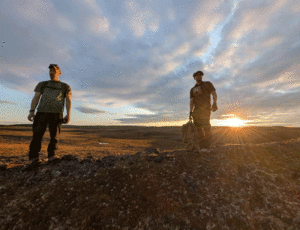One of the core values of Ethnos is stated like this: We value excellence and urgency in all we do to finish the task. I want to focus a while on the “excellence” part of that statement. The excellence is not for the sake of being “better than anyone else”; it is because we are ambassadors for our Lord and Saviour.
I’ve been an English teacher for over 30 years, and one of the points that I stress is excellence in speaking and writing, making sure that the hearers or readers can understand clearly. Some of my students were also trying to become fluent in the language of our host country and had acquired the habit of picking up slang terms. My insistence was to learn the proper way to speak and then to branch out into the more colloquial terms.
How does culture and language acquisition play into this scenario? As missionaries head overseas or next door to Mexico or Canada, each one must spend time learning the trade language of that people as well as the intricacies of its culture. They are going to be speaking to others of the immeasurable love and grace of God, the sacrifice of His Son Jesus, the indwelling work on the Holy Spirit and the lessons learned in walking in the Spirit. Look at those words. How do you know how to say that? How many ways are there to say love? Is there even a word for grace?
Exactly my point! There are so many hurdles that must be jumped over in order to speak and think and react as that people group might. But that fluency must come because of the myriad abstract thoughts, ideas, terms and expressions that must be translated from one’s heart language (be that English, German, Indonesian or others) into the heart language of the people among whom those missionaries minister.
Let me give you a couple of illuminating examples of why the culture and language must be learned for translation purposes.
Martin and Janel minister in West Africa. She writes, “I recently started a new activity during my language study, where I recount a story using pictures that I have drawn to illustrate. One of my stories included the fact that my mom’s dad was a dairy farmer. I didn’t think to mention that he had machines that milked the cows. When I finished, my language helper retold my story while I recorded it. However, when she retold it, she said that my mom milked the cows, which is what would make sense to her.
“By forgetting [one] detail, the story changed in the retelling. If it’s difficult to get all the details correct when telling a simple story, imagine the challenge for those who are translating and teaching the Bible in another language. This is why it takes years to learn the language and then translate the Bible into that language. So much care must be taken to make sure that the meaning is not changed and is clearly communicated.”
Yet there are many people who have “acquired” the language well enough. Gordon and Janet Wohlgemut are now ministering at Ethnos360’s missionary training center in Missouri. They passed along this story.
Four men [from a people group] and a missionary were drafting a translation of Luke 22:24-46. The missionary reported, “When we got to verse 44, we started discussing why Jesus was in such agony. I said, ‘It wasn’t just because He knew He was about to suffer physically on a cross, but also because He was about to bear the sin of all people.’
“Those four took up the conversation from there. They said, ‘True! He wasn’t just bearing our sin, but everybody’s sin from all over the world: from Africa, from America, from China, from Australia. Everywhere! And not just from people today! He bore the sin of all people from all time! Everybody’s sin!’
“For several minutes they kept processing and processing and processing that. And they kept repeating, ‘Everybody’s sin.’
“And then it happened. A holy hush fell on the room. And for no less than 10 minutes, those four men sat in silence … weeping. A couple of them pulled their shirts up, covering their faces, and just wept. I sat there in complete awe at their response and began weeping too.
“I wasn’t sure how or if we were going to move on, but after what seemed like a long, long time, they pulled their shirts down and wiped their eyes. One of the men said, ‘Ok, let’s translate it so other people can understand it too.’”
How can you do that? That can’t be done with a cursory glance at the language and then hope for the best. There must be time, energy and diligence put into learning how to say those kinds of things, how to dig down into the “meat” of God’s Word.
Let me continue. Lisa Kappeler is both a translator and a translation consultant. Talk about needing to understand languages! She is translating the Uriay Scriptures in Papua New Guinea. Here is an example of how she needs to be able to discuss biblical terms with understanding.

My last translation session in the village was a precious one. One of the guys who used to help me when I first started translating hasn’t helped me for years. He’s had other village responsibilities that keep him in and out of the village all the time. He has known that I’d love to work with him again, but I left it up to him. … Once I knew I was going to be leaving the village, I asked him if he’d just help me record some new material one day before I left. He did me one better and committed to two days! The last day that he helped me, we were working on some Old Testament portions. We’d talk through the verses; then I’d read a paragraph, and he’d restate it on my digital recorder. That enables me to get a natural rendering of it. If I’ve done a good job of drafting it, following his language patterns, he can restate it. He will impose his natural patterns on it, and that helps the translation be accurate, natural and clear. Then there are a lot of steps to check the clarity and accuracy of the recording, but this is one of the first steps. But I digress… [Did you catch all those language-learning terms she was throwing in there, like “language patterns”?]
We’d finished recording a number of portions out of Ezra and I Samuel, and so I asked him if he wanted to end there or do a little bit more. We decided to talk through some portions out of Isaiah, but [we’d] save the recording for another day. We talked through a couple of chunks in various chapters, and then we came to [Isaiah] 53. I had previously translated some of the chapter, but we were going to fill in a few verses.
As I started reading through the chapter, I was getting tears in my eyes as I thought about Christ in light of these verses. My voice was catching, and at one point, I stopped so I could get my voice and thoughts under control. I didn’t want to distract him, but by the time we got to verse 12, he and I both had tears in our eyes.
We just stopped right there and talked about who Christ is and how He was sinless and yet died for our sins. He was wiping tears out of his eyes — and sharing a very clear understanding of what Christ did on the cross. It was a precious moment of worship and praise with this guy! What a gift from the Lord to see this guy so moved by the Word! There was another guy there as well who didn’t say anything at the moment, but I heard from my friend, Imi, later on that he was telling her about these verses — and how they had impacted him. I LOVE this job! I LOVE how His Word comes alive and pierces our hearts and minds!
Ahh, to be able to sit and discuss those thoughts with someone else — in another language! And, yes, it is possible to do that. But it takes time, and often time seems to be the one commodity that we don’t have. People need to hear the Good News of Jesus Christ in their heart language, letting those truths sink down into their hearts and minds. That’s what changes their worldviews; that’s what gives them a new lease on life, on Eternal Life.




